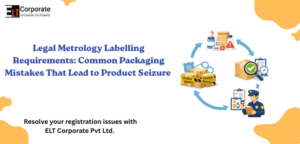Legal metrology in healthcare sector plays a critical role in ensuring accurate measurement of weight, volume. From medical instruments to pharmaceutical packaging, Compliance with the Legal Metrology Act, and packed commodities rules, 2011 patient safety, promotes impartial practice, and creates a public trust.
This guide explains why legal metrology in healthcare industry, which needs to be complied with, examined general areas, and how hospitals and medical business can ensure compliance.
Who Needs Legal Metrology Compliance in Healthcare?
Any healthcare facility or business using weighing and measuring instruments for patient care or commercial purposes must comply. This includes:
- Hospitals & Clinics – weighing scales, blood pressure monitors, infusion pumps.
- Pharmaceutical Manufacturers – packaging drugs with accurate dosage and declared net quantity.
- Medical Device Importers – ensuring imported instruments meet Indian calibration and stamping rules.
- Pathology Labs – accurate laboratory balances, pipettes, and analyzers.
- Diagnostic Centers – X-ray, ultrasound, and other machines linked with calibrated measurement systems.
Why Legal Metrology is Important in Healthcare?
Legal metrology is more than compliance—it ensures patient safety and treatment accuracy. Key benefits include:
- Patient safety – correct doses and weight measurements prevent/under medication.
- Consumer Confidence – patients trust the healthcare system when instruments are accurate.
- Regulatory Compliance – Penalty is avoided under the Legal Metrology Act and LMPC rules.
- Operational accuracy – ensures reliability in diagnosis and treatment results.
- Global Standard – Indian Health Service aligns with WHO and International Guidelines.
Common Focus Areas During Healthcare Metrology Checks
| S.No. | Equipment/Area | What Authorities Verify |
| 1. | Weighing Scales in Hospitals | Accuracy for patient weight, neonatal care. |
| 2. | Infusion Pumps | Correct delivery of IV fluids per ml/hour. |
| 3. | Blood Pressure Monitors | Calibration against standards for accuracy. |
| 4. | Lab Balances & Pipettes | Precision in diagnostics and drug preparation. |
| 5. | Pharmaceutical Packaging | Declared net weight/volume matches label. |
Step-by-Step Guide to Ensure Legal Metrology Compliance in Healthcare
Step 1 – Register Instruments
All healthcare weighing and measuring instruments must be registered and stamped with Legal Metrology authorities.
Step 2 – Schedule Calibration & Verification
Regular intervals (quarterly/annually) depending on equipment type.
Step 3 – Maintain Calibration & Stamping Records
Keep valid calibration certificates, stamping logs, and product label records.
Step 4 – Train Staff & Technicians
Educate healthcare workers to handle instruments properly and identify measurement errors.
Step 5 – Conduct Internal Quality Checks
Routine verification using test weights and samples.
Step 6 – Corrective Actions
If discrepancies are found, recalibrate or replace instruments immediately and notify authorities if required.
Documents Required for Healthcare Calibration & Audit
- Valid LMPC Registration Certificate.
- Calibration Certificates from authorized labs/officers.
- Stamping Records for all instruments.
- Product Labels (pharma & medical devices) with declared net quantity.
- Internal calibration/quality logs.
- Equipment maintenance reports.
Penalties for Non-Compliance in Healthcare Sector
Failure to comply with legal metrology in healthcare may result in:
- Fines up to ₹50,000 per violation.
- Seizure of Instruments or Medicines until compliance is restored.
- Operational Suspension for repeated violations.
- Criminal Liability in cases of fraudulent practices leading to patient harm.
How ELT Corporate Supports Healthcare Compliance
At ELT Corporate, we assist hospitals, labs, and pharma companies with:
- Pre-Audit Checks – verifying medical devices and packaging compliance.
- Calibration & Documentation – ensuring valid certificates and logs.
- Training Programs – for healthcare staff and operators.
- Authority Liaison – coordination during stamping and inspections.
- Post-Audit Compliance – corrective actions and reporting.
FAQs
Q1. Can pharma packaging be exempted from calibration checks?
No, all packaged medicines must declare accurate weight/volume as per LMPC rules.
Q2. Are private labs authorized to calibrate medical equipment?
Yes, if accredited and government-approved.
Conclusion
Legal metrology in healthcare sector is not optional – it is necessary for patient safety, fair trade and regulatory compliance. By ensuring accurate measurements, hospitals and medical businesses protect life, create confidence, and maintain reliability in a highly regulated industry.
Need compliance support?
Contact ELT Corporate today for complete legal metrology solutions tailored to the healthcare sector.








